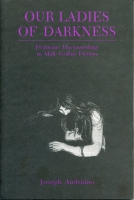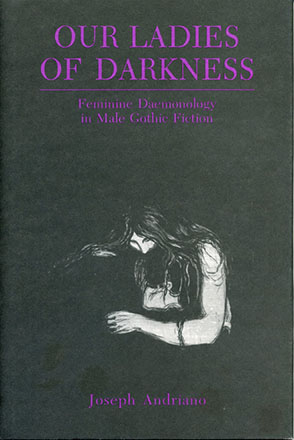Our Ladies of Darkness
Feminine Daemonology in Male Gothic Fiction
Joseph Andriano
“The theme of the demonic feminine which has haunted men from time immemorial has been limited in Andriano's very fine study of Gothic fiction. He poses several questions at the outset with regard to the erotic and deadly nature of such forces and to their frequent appearances in literature. He answers these straightforwardly and cogently in this book.”
- Description
- Reviews
- Bio
- Subjects
The haunting is an incursion into the male ego's dominion: the female demon is seen as a usurper or intruder; she inhabits and insidiously attempts to exert her influence, to feminize the male. These demands include the impelling need to acknowledge male femininity, or androgyny. Ignoring this drive, which Andriano views as instinctual and archetypal, often results in what the Romantics called "nympholepsy," and what Carl Jung called "anima-possession."
Although the notion that men need to acknowledge their own femininity is not new, the realization that doing so involves coming to terms not only with Eros (in its widest sense) but also with Thanatos has never been sufficiently emphasized, except perhaps by the post-Jungian James Hillman, by whose work Andriano is especially influenced. This book clearly and succinctly demonstrates that fear of the inner feminine prevents a man from ever fully maturing; his anima remains that of a child (he can only view women as girls or mothers), and he never comes to know, much less to love, the dark side of his soul, his own "lady of darkness."
“The theme of the demonic feminine which has haunted men from time immemorial has been limited in Andriano's very fine study of Gothic fiction. He poses several questions at the outset with regard to the erotic and deadly nature of such forces and to their frequent appearances in literature. He answers these straightforwardly and cogently in this book.”
Joseph Andriano is Professor of English and Assistant Head of the English Department at the University of Louisiana at Lafayette.
Mailing List
Subscribe to our mailing list and be notified about new titles, journals and catalogs.




